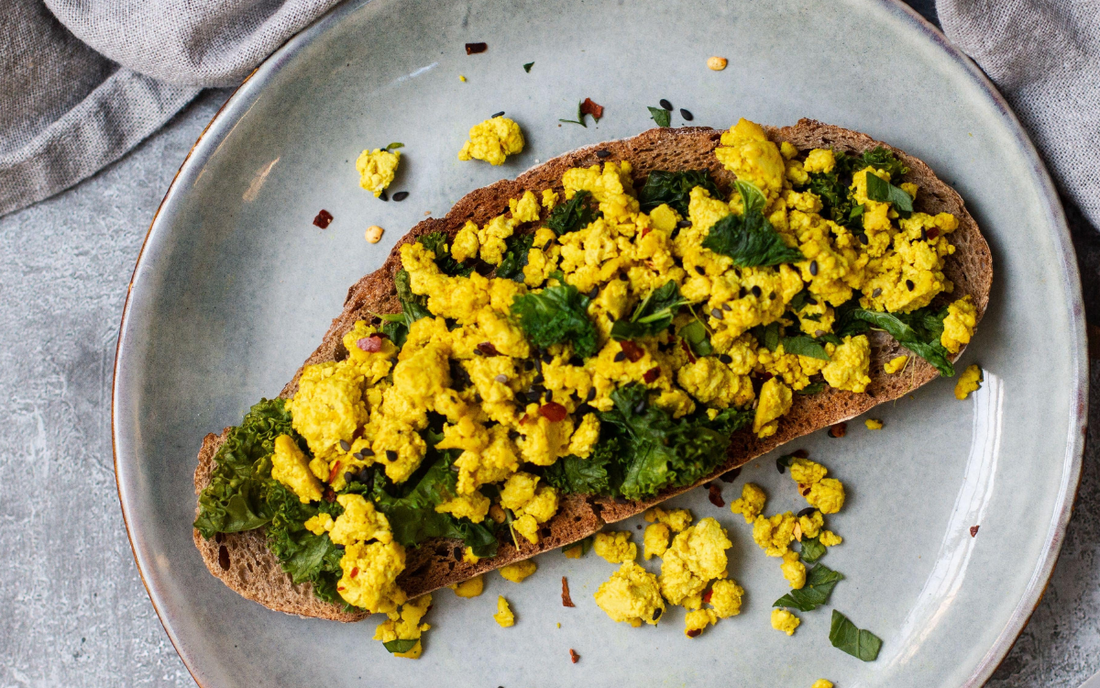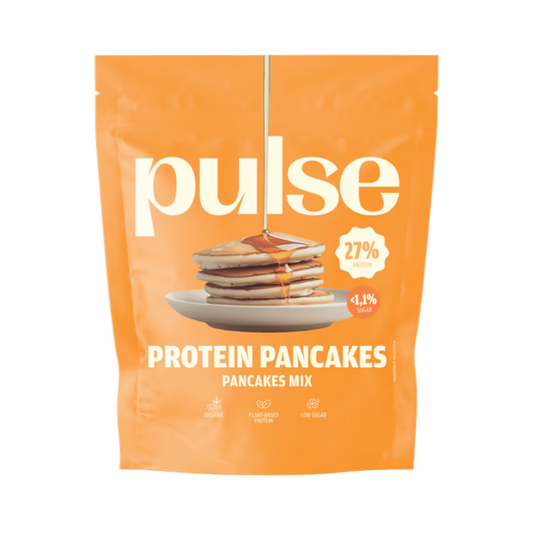
5 Myths About Protein
In the world of nutrition, protein is often the subject of much discussion. Essential to our health, it plays a key role in how our bodies function. Yet, many myths persist about it, creating confusion about its consumption and its impact on weight.
What we think we know about proteins… And what we forget
Protein isn't just for athletes in training. It's relevant to everyone, providing essential nutrients for the body's proper functioning. Its benefits are multiple: it strengthens muscles, helps maintain good energy levels, and helps regulate calorie intake.
Employing a variety of protein sources, especially plant-based ones, allows you to diversify your diet while meeting your nutritional needs. Combining legumes, whole grains, and a few superfoods ensures a balanced diet. With simple tips, it's easy to incorporate more protein into your routine without disrupting your usual routine.
Let's decipher together 6 common myths that it's time to leave behind, with some practical tips for adjusting your diet.
Myth #1: “You have to eat meat to get enough protein”
This is probably the most common myth. However, protein isn't only found in meat. Many plant-based foods are rich in protein and can cover our daily needs. Legumes (lentils, chickpeas, beans), whole grains (quinoa, brown rice), nuts (almonds, walnuts), soy, and seeds are excellent sources of protein.
By combining these foods wisely, you get all the essential amino acids needed for the body to function properly. For example, combining grains and legumes in the same meal provides a complete protein.
Myth #2: “Protein makes you fat”
Many people believe that consuming large amounts of protein leads to weight gain. In reality, protein has a satiating effect that can help control appetite and, therefore, manage weight. It also plays a key role in maintaining muscle mass, especially during weight loss. It's simply a matter of eating a varied and balanced diet, as the body needs a wide variety of nutrients. And, of course, consider physical activity.
Myth #3: “Protein is only for athletes”
It's true that athletes have increased protein needs to support their training and promote muscle recovery. However, protein is essential for everyone. It helps build and repair tissues, produce enzymes and hormones, and maintain the body's overall health.
So, whether you are sedentary or active, incorporating quality protein into your daily diet is essential for maintaining good health.
Myth #4: “Plant proteins are incomplete”
This myth suggests that plant-based proteins do not contain all the essential amino acids. Although some plant sources are deficient in one or two amino acids, a varied diet can help fill these gaps.
For example, combining grains (like rice) with legumes (like beans) in the same meal provides a complete protein. Plus, foods like quinoa, buckwheat, and soy contain all the essential amino acids. Yet another good reason to eat a variety of foods!
Myth #5: “A high-protein diet is bad for your kidneys.”
A high protein intake can put additional strain on the kidneys, as they are responsible for removing waste products from protein metabolism. However, in healthy individuals, no studies have shown that a high-protein diet has any adverse effects on kidney function. This myth primarily affects people who already have kidney disease, who may need to adjust their diet.
For the rest of the population, a suitable, varied, and balanced consumption of protein, whether animal or plant-based, poses no risk. On the contrary, it promotes muscle health, supports energy, and helps regulate carbohydrates and fats as part of a well-structured overall diet.
Myth #6: “Protein is already everywhere, no need to pay attention to it”
This myth is based on a seductive idea: as long as you eat a little bit of everything, you're bound to get enough protein. However, in reality, the quantity and quality of protein sources vary greatly from one person to another. Many people—such as seniors, pregnant women, or those following a vegetarian or vegan diet—may not reach their recommended intake. But this could affect you too!
To simplify your daily life, discover Pulse Protein
To help you meet your protein needs, the Pulse Protein range has been designed for easy, delicious, and 100% plant-based protein nutrition. Here are some examples of our flagship products:
- Protein powders : add to your smoothies or post-workout bowls;
- Protein-enriched granolas : perfect for breakfasts that combine pleasure and nutrition;
- Protein spreads like our peanut butter (32% protein, no added sugar or palm oil);
- Pancake mix rich in vegetable protein, easy and quick to prepare.
All Pulse products are organic, nutrient-dense, locally sourced, and free of unnecessary additives, helping you meet your needs without compromising your well-being.
In summary
Protein isn't just for bodybuilders, nor is it a threat to weight loss or kidney health. It's an essential pillar of our nutrition, and every meal can be an opportunity to consume a variety of high-quality sources.
By keeping an eye on the quantity, listening to your body's signals and relying on good advice, it becomes easy to re-establish the truth about proteins and adopt a calm approach adapted to your needs.
FAQ – Your most frequently asked questions
1. How much protein is right for you?
It depends on the profile: between 0.8 and 1.2 g of protein per kg of body weight, more in case of sport, pregnancy or advanced age.
2. Are plant proteins as effective as animal proteins?
Yes, provided you vary the sources (cereals + legumes) to cover all the essential amino acids.
3. Does protein make you fat?
No. In the right doses, they help manage calories and appetite and support muscle mass during weight loss.
4. Are shakes or supplements necessary?
Not mandatory, but they can effectively complement a plant-based diet or a specific diet.
5. Is it dangerous for the kidneys?
No, except in cases of kidney failure. For others, appropriate consumption is safe.
6. What foods are rich in plant protein?
Legumes, tofu, tempeh, seeds, quinoa, dried fruits, oilseeds…
7. Should you eat protein with every meal?
This is better for better assimilation and to support energy throughout the day.
8. Should children or seniors eat more protein?
Yes, because their needs are specific. You have to adapt the quantities and vary the sources.
9. How to integrate plant proteins without disrupting your habits?
Add plant-based powders to your smoothies, replace meat with legume-based meals once or twice a week. Replace your cookies with a Pulse bar and your cereal with our granolas.





